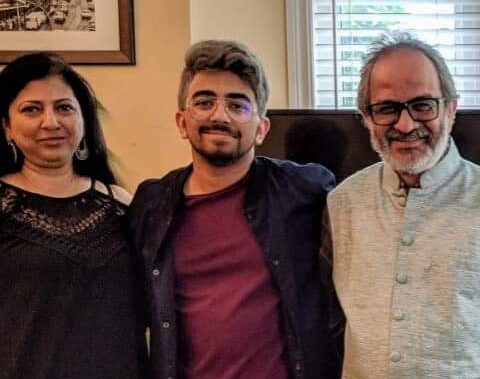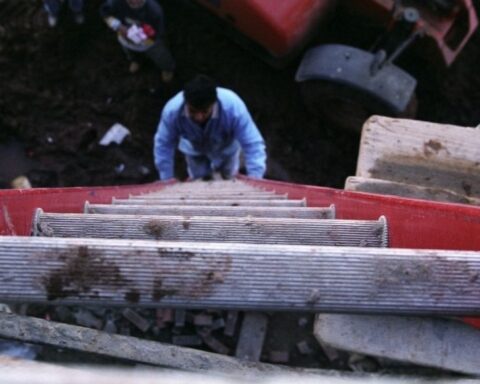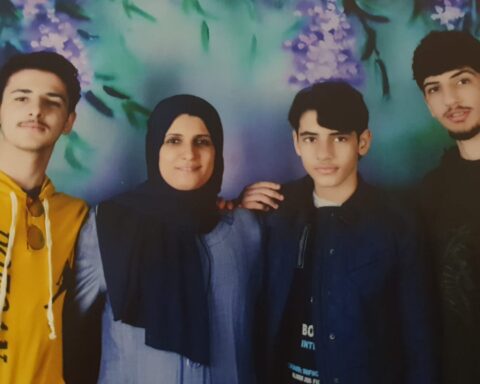Belief is a novel by Mayank Bhatt, a Mumbai-born resident of Toronto. It tells the story of the son of Indian immigrants to Canada who cooperates with terrorists to identify Canadian places to bomb, in part to avenge the death of Muslims in Afghanistan by Canadian soldiers.
The book parallels to a certain extent the 2006 case of the “Toronto 18”, a terrorist cell that planned to explode truck bombs in Toronto and at a military base in eastern Ontario to punish Canadians for the decision to deploy the Armed Forces in Afghanistan after 9/11.
This work of fiction is billed as a look into what “makes young people give up their sheltered, secure lives and take up causes that are sure to lead to catastrophe, for others as well as themselves”.
It does not quite achieve that goal, but does contain a good look into the effects of terrorism on a family. We see the devastating effects on the mother and father, immigrants who fled violence in India to seek a new home in Canada, but had to struggle to make a new life in a new land. We see the anguish of a pregnant sister whose husband’s promotion may be canceled because of Rafiq’s actions.
We see a South Asian police officer, Ravindar, who tries to help the family but who is not trusted completely, perhaps because of his role as a representative of the law.
The book does delve slightly into what has often been put forward as the ‘causes’ of radicalization to violence in Canada. There are references to the slaughter of Muslims in India and to discrimination and bias against immigrants in this country.
Neither theme is developed in this novel. It also does not explore other reasons why individuals go down the path of radicalization.
The mastermind
Early in the novel the author includes excerpts from emails sent by the terrorist ‘mastermind’, a man named Ghani Ahmed, to Rafiq, the young man arrested and accused of participating in a terrorist plot. These excerpts are full of the rhetoric most commonly associated with terrorist recruiters: innocent Muslims are being killed and no one is doing anything to stop it. Ahmed appeals to the faith of Rafiq and tries to convince him that fighting back is a religious obligation.
Ahmed is an intriguing character and more could have been written about him. Who was he? Where did he come from? Who else was involved in his plot? How did he identify Rafiq as a willing participant? .
The one character who remains an enigma is Nagma Khala, a woman who runs a Muslim crèche and who had an extraordinary influence on the young Rafiq. She is deeply religious, but it is never clear whether her faith contributed in any way to Rafiq’s openness to radicalization.
Flashbacks to India
I welcomed the introduction of two officers of the Canadian Security Intelligence Service (CSIS), although their portrayal is superficial and unsatisfactory. It would have been interesting to introduce a main character from CSIS and show how that person was trying to understand the scope of the terrorist plot and Rafiq’s role in it. That may have been beyond the author’s expertise, though.
The book contains many flashbacks to life in India and provides interesting background into the lives of the protagonists, although the link between these episodes and Rafiq’s decision to become a terrorist is not obvious. They do provide insight into the circumstances behind the parents’ choice to leave India, but these are tangential to the book’s primary plot.
Throughout the book the author seeks to present Rafiq as an unwilling dupe whose involvement in terrorism is peripheral. While Rafiq regrets his choice, he also seems to minimize his role.
It is only at the end of the novel, when Rafiq learns of the terrorist attacks in Mumbai (in 2008 – a real event) that he grasps the enormity of what he was part of in Canada and (spoiler alert!!) tries to commit suicide by overdosing on sleeping pills. The author’s attempt to paint Rafiq as a character to be pitied does not come off strongly, even when he writes of the bullying Rafiq received at the Maplehurst Detention Centre in Toronto.
Overall, the book flows and reads well, with the exception of the flashbacks. These occur at times at unexpected intervals and detract from the story.
The book does a good job at showing the destruction of a Canadian immigrant family when one member becomes involved in terrorism. The emotional responses of the characters are believable and compelling.
As long as the reader does not see this novel as an actual book on homegrown terrorism in Canada it is a good read.
Phil Gurski worked for more than three decades in Canadian intelligence, including 15 at Canadian Security Intelligence Service (CSIS), and is the author of the Threat from Within and the forthcoming Western Foreign Fighters (Rowan and Littlefield). He blogs at http://www.borealisthreatandrisk.com/blog/
Phil Gurski is a former terrorism analyst at the Canadian Security Intelligence Service (CSIS). He specializes in radicalization and homegrown Al Qaeda/Islamic State/Islamist-inspired extremism and has published several books, including the forthcoming When Religions Kill: how extremists justify violence through faith.” He is a member of New Canadian Media’s board of directors.





